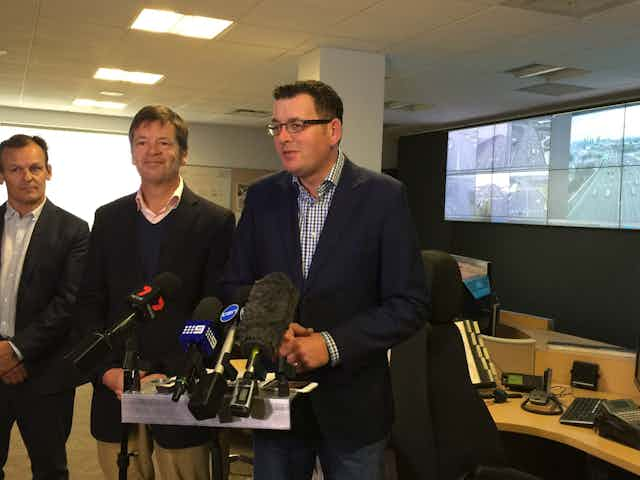One of the startling facts about the Brexit vote was the deep division between the city of London and the rest of the country. There was clearly a sense that change was working to the advantage of the urban elites, and often to the detriment of people who lived outside those privileged areas.
The recent Australian election reveals some of the same division but within the major cities rather than between city and the regions. Inner-city areas voted quite differently to the suburbs.
The fight over Melbourne’s East-West Link road project played out in those terms. The plan was heavily opposed by inner-city residents who had access to good public transport (trams, trains, buses, bicycles etc) and supported by residents of the suburbs who wanted improved cross-city road transport. The inner-city elite won.
We now have a similar but more egregious case evolving in Melbourne. The state government is supporting the construction of a project called the Western Distributor. It is basically a plan to improve the flow of goods in and out of the Port of Melbourne (which is in the CBD). This provides a significant benefit to the people of the western suburbs – that is, to the poorer half of the city.
There are two advantages to the city’s west. It will dramatically reduce the number of trucks passing along suburban streets and it will reduce travel times from the west to the north of the city. The government’s evaluation is that it will:
… take 22,000 vehicles including 6,000 trucks off the West Gate Bridge daily, remove up to 6,000 trucks from local streets in the inner west, improving amenity, air quality and safety … [and] reduce serious injury crashes by 20%.
There is also a broad economic advantage to Victoria as a result of better logistics flows. Melbourne is a major container port and improvements to the movement of freight produce advantages for all Victorians: the project will “cut travel time to the port by up to 50%, and deliver an annual A$35 million saving to the freight industry”.
Opposition based on self-interest
The inner city is opposed to the project. The grounds put forward are revealing. City of Melbourne Greens councillor Cathy Oke said:
No city in the world is encouraging cars into the CBD so I can’t see how this project is a winner for our liveability status.
The state Greens MP for inner-city Melbourne, Ellen Sandell, makes the same argument:
No modern, global city is trying to bring more cars into its CBD. We should be investing even more in public transport, cycling and pedestrian infrastructure and ways to get trucks off streets in the west – not new freeways that bring cars into the city.
These are clearly selfish propositions. Inner-city residents do not want any more cars in the city regardless of the benefits that might accrue to other residents of Melbourne, and regardless of any broader economic benefits for the city and the state. The fact that the people of the west are poorer, have worse public transport, worse health outcomes and high levels of unemployment, is seen as unimportant.
A recipe for social divisions
These are the sort of elite positions that created Brexit and the broader political unhappiness in Europe and the US. If the inner-city residents are going to be this selfish, then we can expect to see some political response from the suburbs.

The inner city is spoilt. Inner-city residents have free trams in Melbourne, paid for by people in the suburbs. Inner-city residents have all of the Melbourne arts precincts and all of the cultural venues, also all subsidised by people in the suburbs. The inner city also has all of the major sporting venues, again all subsidised by the suburbs.
If we are to avoid the rise of populist concerns seen in other countries, the inner-city elite need to change its attitude. Rather than dividing the society by rejecting change that might hurt rich inner-city dwellers a little but provide substantial benefits for the rest of the city, these sorts of changes need to be considered fairly and discussed reasonably.
Residents in inner-city Melbourne (and inner-city Sydney and Brisbane too) have lower unemployment, higher pay and much better cultural amenity than people in the suburbs. Fairness requires some change and better support for the poorer parts of the city, not the richer parts.
Governments need to respond too by reducing the subsidies to the inner city. Even some clearer presentation of the state budgets to separate out the impact of spending on a geographical basis would help. Let us start spreading the benefits more widely.

